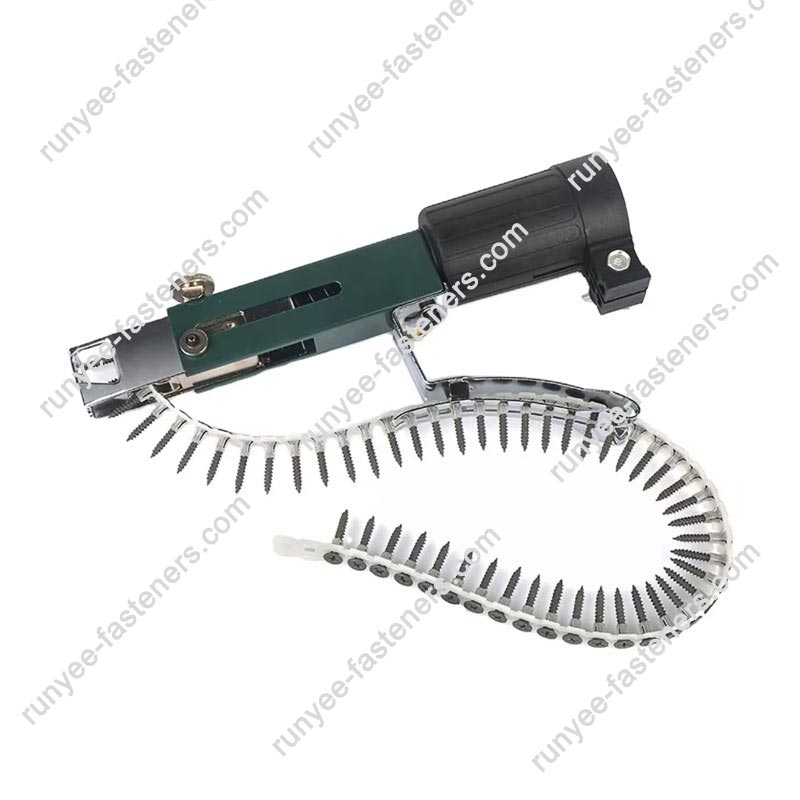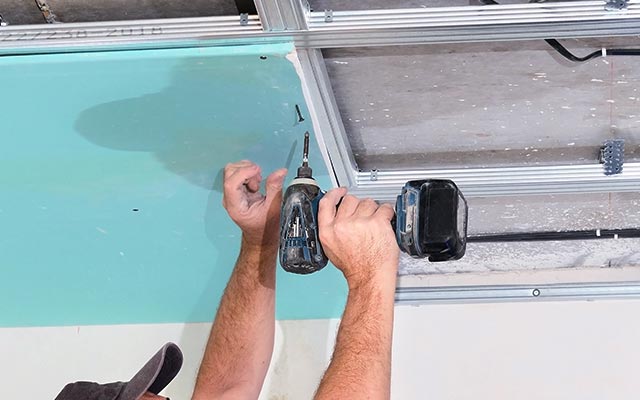Why Are Drywall Screws Becoming the Backbone of Modern Construction?
2025-10-22
Drywall screws have become an integral part of modern construction, providing secure and efficient fastening solutions for attaching drywall panels to wooden or metal studs. Their sharp points, fine or coarse threads, and specialized heads are engineered to ensure strong grip, minimal damage, and smooth installation. These screws are not just simple hardware — they represent precision engineering designed to meet the structural and aesthetic needs of today’s construction projects.
The rise of sustainable building practices, modular housing, and lightweight materials has accelerated the demand for high-quality drywall screws. They offer superior holding power, consistent performance, and compatibility with electric or automatic screwdrivers, which significantly enhances installation efficiency. Whether used in residential renovation, commercial construction, or industrial assembly, drywall screws play a silent yet critical role in ensuring the durability and stability of interior structures.
Core Features of Drywall Screws:
| Parameter | Specification |
|---|---|
| Material | Carbon Steel, Stainless Steel, or Alloy Steel |
| Surface Treatment | Phosphate Coating, Zinc Plating, Black Oxide Finish |
| Thread Type | Coarse (for wood studs), Fine (for metal studs) |
| Head Type | Bugle Head (for flush finish) |
| Drive Type | Phillips or Pozidriv |
| Diameter Range | 3.5mm – 6.0mm |
| Length Range | 16mm – 125mm |
| Point Type | Sharp Point or Self-Drilling Point |
| Standard Compliance | ISO, DIN, ANSI Standards |
| Typical Applications | Drywall fastening, ceiling mounting, partition frames |
The choice of drywall screw directly impacts structural strength, installation speed, and surface appearance. As building materials evolve, manufacturers continue to innovate screw designs to reduce stripping, improve corrosion resistance, and enhance torque performance.
Why Are Drywall Screws Preferred Over Traditional Fasteners?
The popularity of drywall screws is not accidental; it stems from their remarkable advantages in construction performance, precision, and durability. Compared to nails or standard screws, drywall screws provide greater holding strength and are specifically designed to prevent damage to drywall sheets during installation.
Key Advantages of Drywall Screws:
-
Superior Grip Strength: The deep-thread design ensures secure attachment to both wood and metal studs, minimizing loosening or pull-out over time.
-
Professional Finish: The bugle head shape allows the screw to sit flush with or slightly below the surface, making it easier to apply joint compound and achieve a smooth finish.
-
Corrosion Resistance: Advanced surface coatings such as zinc plating or phosphate enhance durability, particularly in humid or high-moisture environments.
-
Installation Efficiency: Their sharp points and self-tapping capabilities reduce the need for pre-drilling, saving significant labor time.
-
Vibration and Load Resistance: Engineered for mechanical stability, they maintain tight joints even under long-term load or vibration.
How Do Drywall Screws Compare to Conventional Nails?
While nails can cause cracking or bulging in drywall sheets, drywall screws prevent these issues through precision threading and controlled torque application. Moreover, screws can be easily removed and reinstalled without damaging the surrounding material, making them ideal for modular or maintenance-oriented projects.
Future Trends:
With the increasing adoption of lightweight building systems, drywall screws are evolving to incorporate bi-metal compositions, improved rust-proof coatings, and eco-friendly manufacturing processes. Automation in drywall installation is also driving the demand for machine-compatible screw designs optimized for speed and accuracy.
How to Select the Right Drywall Screw for Your Project?
Choosing the appropriate drywall screw is essential for achieving structural integrity and long-term performance. The selection depends on factors such as stud material, drywall thickness, environmental conditions, and required installation speed.
Step-by-Step Guide for Selecting Drywall Screws:
-
Determine the Stud Material:
-
Wood Studs: Use coarse-thread drywall screws for better grip.
-
Metal Studs: Opt for fine-thread screws or self-drilling points.
-
-
Check the Drywall Thickness:
-
1/2 inch drywall → Use 1 1/4 inch screws.
-
5/8 inch drywall → Use 1 5/8 inch screws.
-
-
Consider the Environment:
-
For humid or coastal areas, stainless steel or zinc-plated screws prevent corrosion.
-
For indoor dry environments, black phosphate-coated screws offer good performance.
-
-
Match Screw Length to Framing Depth:
-
The screw should penetrate at least 5/8 inch into the stud for optimal holding strength.
-
-
Use Compatible Tools:
-
Use a screwdriver or automatic drywall screw gun with a torque control setting to avoid overdriving.
-
Pro Tip:
Always select screws that comply with ISO or ANSI standards to ensure uniform quality and performance. Cheap or unverified screws may lead to structural issues, corrosion, or installation inefficiencies.
Common Misconceptions About Drywall Screws:
Many assume that all drywall screws are interchangeable, but fine-thread and coarse-thread types serve distinct purposes. Using the wrong screw type may reduce grip and compromise the overall strength of the wall system.
FAQs: Common Questions About Drywall Screws
Q1: What Is the Difference Between Coarse-Thread and Fine-Thread Drywall Screws?
A1: Coarse-thread screws are designed for wood studs because their wide spacing bites into wood fibers easily, offering superior grip. Fine-thread screws, on the other hand, are used with metal studs; their narrow spacing and sharp points allow smooth penetration without stripping the metal surface.
Q2: How Can I Prevent Drywall Screws from Popping Out Over Time?
A2: Screw pops often occur when screws are not driven deep enough or when the framing shifts due to temperature or humidity changes. To prevent this, use high-quality screws with consistent threading, drive them just below the surface without breaking the drywall paper, and ensure proper spacing (typically 12 inches on walls, 16 inches on ceilings).
Q3: Are Drywall Screws Suitable for Exterior Applications?
A3: Standard drywall screws are intended for indoor use. However, for exterior or high-humidity environments, corrosion-resistant types such as zinc-plated or stainless steel drywall screws are recommended. These provide added protection against rust and oxidation, ensuring longevity.
Q4: Can Drywall Screws Be Reused After Removal?
A4: While technically possible, reusing drywall screws is not advisable. The threads may wear or deform during the first installation, leading to reduced grip strength on subsequent use. Always opt for new screws for safety and consistency.
The Future of Drywall Fastening: Sustainability and Innovation
As global construction trends move toward energy efficiency, modularity, and environmental sustainability, drywall screws are evolving to meet new demands. Manufacturers are integrating eco-friendly production techniques, automated coating processes, and precision-machined threading technologies to enhance quality while reducing waste.
Emerging innovations include:
-
Biodegradable Coatings: Environmentally safe phosphate alternatives for corrosion protection.
-
Hybrid Alloy Screws: Combining lightweight materials with high-tensile steel cores.
-
Smart Fastening Systems: Integration with digital torque control and automated drywall installation tools.
These advancements are transforming drywall screws from basic construction consumables into high-performance engineering components that align with the principles of modern architecture.
As construction standards tighten and demand for long-lasting, energy-efficient interiors rises, professional builders increasingly rely on trusted suppliers that provide consistent quality and technical support. Among these, RUNYEE factory stands out as a reputable manufacturer known for its precision-engineered drywall screws, competitive pricing, and global supply reliability.
RUNYEE’s products are widely used in residential, commercial, and industrial projects worldwide, offering both standard and customized specifications to meet diverse client needs.
For more information or inquiries about bulk orders, customized production, or technical consultation, contact us today to explore how RUNYEE can deliver the right drywall fastening solution for your project.




























